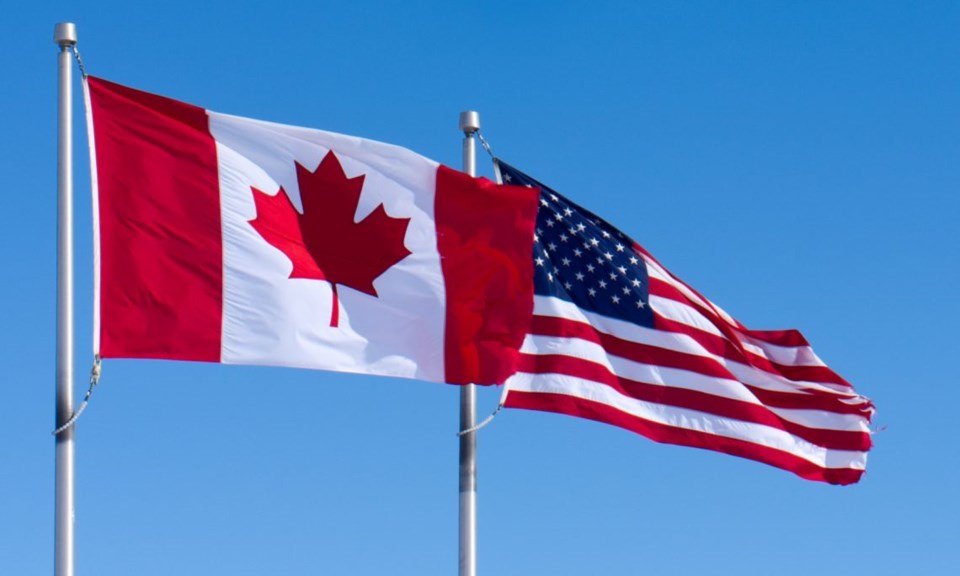While the threat of tariffs still looms, Canadians have more to worry about after President Donald Trump signed an executive order making the Global Tax Deal void in the U.S.
Julia Klann, national U.S. corporate tax leader at Doane Grant Thornton, said the move could create competitive challenges for Canada.
“In the past, aligning Canadian and U.S. tax rates helped neutralize investment decisions, making Canada equally attractive to foreign investors,” said Klann. “A lower U.S. tax rate could shift this balance, putting Canada at a disadvantage unless it introduces more competitive measures.”
Klann adds that without adjustment, Canada risks losing foreign investment, which could negatively impact the economy.
The Organization for Economic Cooperation and Development (OECD) created the Global Tax Deal, which implements a minimum 15 per cent tax on major multinational companies. It was signed by 136 countries in 2021 as a way to ensure that large enterprises pay a minimum level of tax on their income in each jurisdiction where they operate and essentially level the playing field.
The presidential memorandum, which was signed amongst nearly 50 other presidential actions on Trump’s first day in office, said the Global Tax Deal allows “extraterritorial jurisdiction over American income” and also limits the U.S.’ “ability to enact tax policies that serve the interest of American businesses and workers.”
By pulling out of the Global Tax Deal, the Trump administration aims to bring more investment into the U.S. by making it a tax-free haven for corporations.
Trump has also campaigned to reduce the U.S. corporate alternative minimum tax rate from 21 per cent to 15 per cent for domestic corporations. In March, predecessor Joe Biden proposed to increase the 21 per cent corporate tax rate to 28 per cent in his 2025 fiscal year budget before dropping out of the presidential race.
“Historically, the U.S. has charted its own course in tax policy, and the OECD framework remains closely aligned with many U.S. tax principles,” said Klann. “This alignment suggests that significant disruptions for taxpayers are unlikely; however, if the U.S. decides to lower its corporate tax rate further, it could create competitive challenges for Canada.”
Trump made tax cuts during his first term in office in 2017 with the Tax Cuts and Jobs Act (TCJA), which effectively lowered the federal corporate tax rate from 35 per cent to 21 per cent.
A 2018 report done by PricewaterhouseCoopers (PwC) commissioned by the Business Council of Canada said the TCJA “eliminated one of Canada’s main competitive advantages” and had made the U.S. a more attractive place to locate capital-intensive businesses. PwC said the most capital-intensive sectors facing the highest risk are chemicals, machinery manufacturing, plastic and rubber manufacturing and transportation manufacturing, while the impact on the oil and gas industry would be “relatively small.”
Although tariffs are still top of mind for many Canadians, Rob Aitken, associate professor of political science at the University of Alberta, said changes to U.S. tax policy could have more subtle, long-term effects on the working class.
“Something we see in Alberta is the provincial argument that there’s an Alberta advantage because of our tax policy, and a lot of free markets support that,” said Aitken. “But I would be a critic of that policy, because it really does undermine and constrain what governments can do on the revenue side.”
Aitken adds that Americans could potentially see the government be more cautious about spending on social programs because of its low tax policies.
“I fear that there might be those in Canada that take the same approach and say we need a policy that’s more in line with the U.S. and not in line with our international partners or with larger global institutions,” said Aitken. “That’s an important factor that could create constrained governments as they grapple internationally with economic crises.”
Ahead of the U.S. leaving the Global Tax Deal, several Canadian companies began lobbying on issues of tax policy in 2024, the IJF has found.
The list includes two pension funds – the Ontario Municipal Employees Retirement System and the Ontario Teachers’ Pension Plan – which are both lobbying in the U.S. on tax issues and corporate alternative minimum tax, respectively.
Liberty Utilities, a company that provides natural gas to New Brunswick, is monitoring “proposals related to corporate tax issues,” according to a recent lobbying registration.
The Canada Life Reinsurance Company, a subsidiary of Great-West Lifeco Inc. with a US$1.85 trillion portfolio, is advocating for “appropriate tax treatment.”
TD Bank is lobbying on “general tax policy” and “international tax issues,” while the Canadian National Railway Company is lobbying on tax reform and rate reduction issues.




